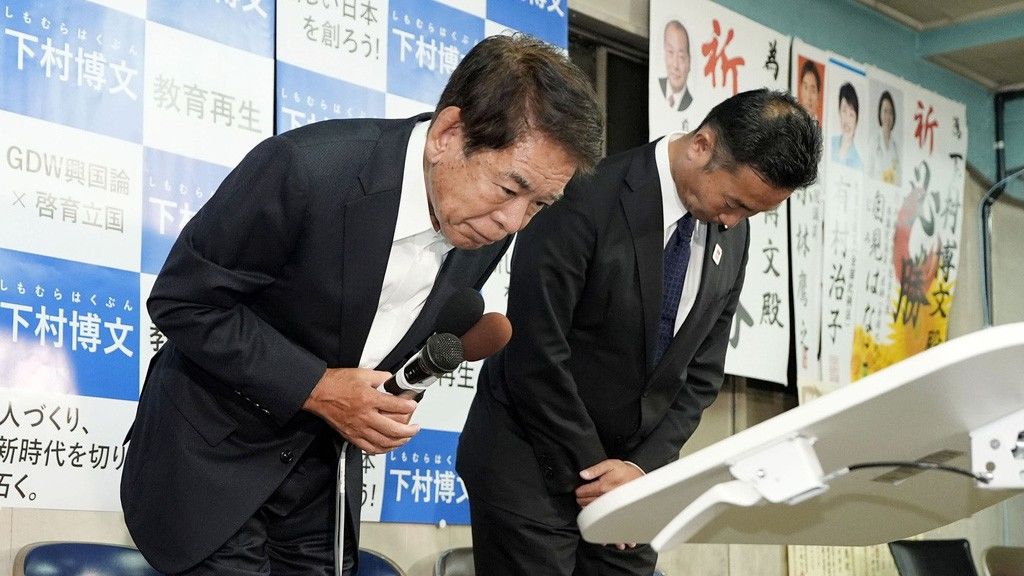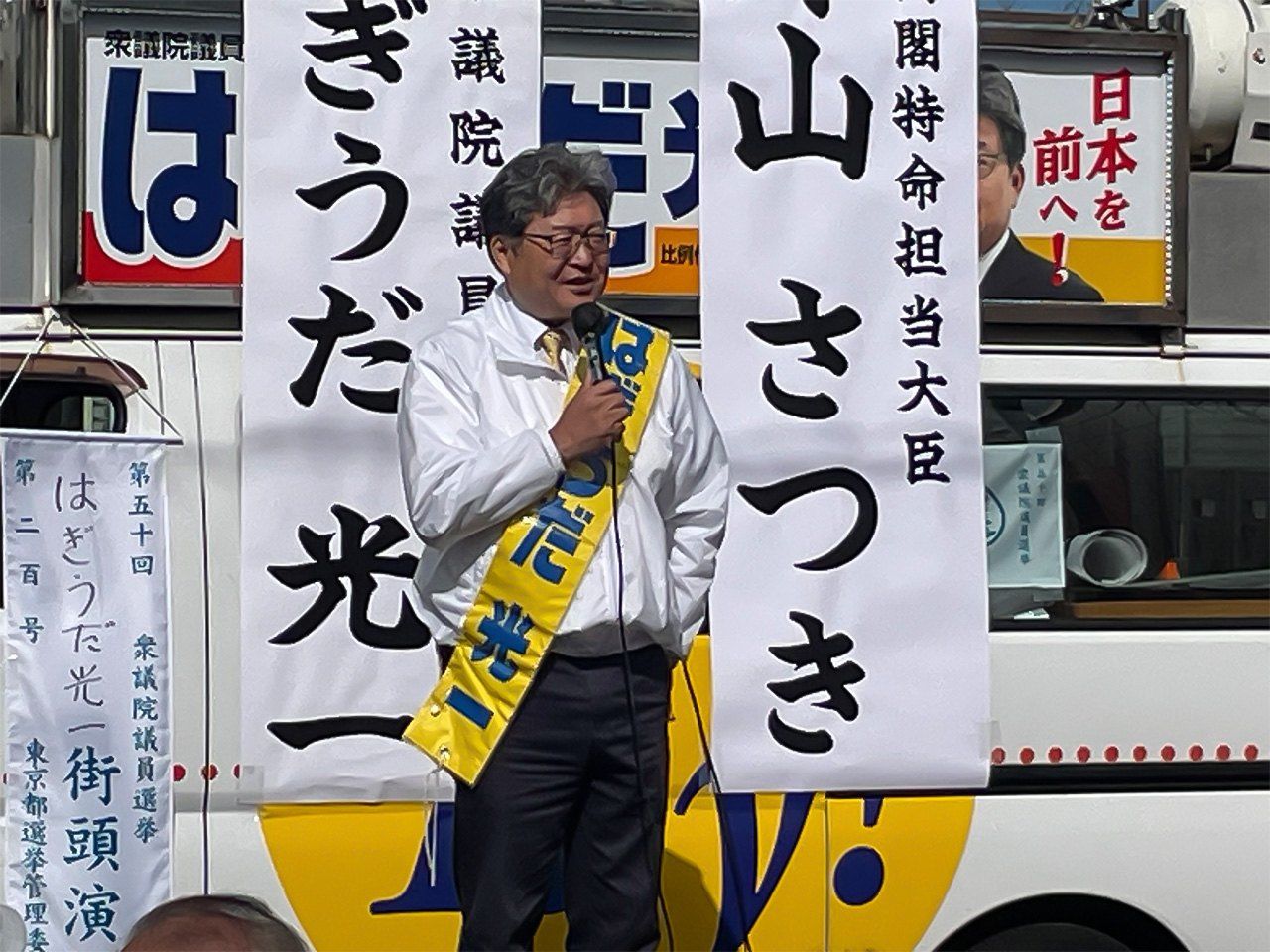
How Will the Unification Church Scandal Pan Out?
Politics- English
- 日本語
- 简体字
- 繁體字
- Français
- Español
- العربية
- Русский
The Electoral Cost of LDP Church Support
On October 23, 2024, four days ahead of the general election, the journal Bungei Shunjū published an article of mine in its online edition: “Named and Shamed,” a piece detailing top-secret documents revealing LDP candidates who received support from the Unification Church in the 2021 general election. In the article, I examined the way the church mounted an organized campaign to support LDP candidates facing poor prospects in their districts, as well as LDP candidates who had marginal chances of regaining seats via party lists in the proportional representation vote. In the general election in October 2024, LDP candidates in marginal seats were voted out around the country, and only a few regained their seats via party lists. This appears to be a result connected to the former Unification Church withdrawing its support for LDP candidates.
The honeymoon enjoyed by the Unification Church and the LDP ended abruptly with the assassination of former Prime Minister Abe Shinzō in July 2022. A look at the history of the two organizations shows that they strengthened their relationship during Abe’s time in office from 2012 to 2020. In fact, the true nature of the Church’s relationship with the LDP has yet to be completely revealed, with new pieces of evidence and connections still coming to light.
Let us revisit the history of the issues faced by the Unification Church and its relationship with the LDP. Beginning as religious organization started by Moon Sun Myung in 1954 and known formally as the “Holy Spirit Association for the Unification of World Christianity,” the Unification Church was bolstered by the protection afforded to it by Park Chung Hee’s military government, and championed “victory over communism.” The “Moonies,” as they were dubbed, expanded to Japan in 1959. In 1968, the church established the International Federation for Victory over Communism, with support from former Prime Minister Kishi Nobusuke, grandfather of Abe Shinzō.
However, in 1984, the former editor of Unification Church mouthpiece Sekai Nippō revealed the existence of a secret ceremony in which a Japanese church official dressed as the Emperor of Japan bowed and scraped before Moon, causing many right-wing organizations to cotton on to the church’s anti-Japanese ideology, and turn their backs on the IFVOC. At the same time, politicians valued the way the federation provided them with secretaries and election support staff: in the 1986 upper and lower house elections under Prime Minister Nakasone Yasuhiro, Moon Sun Myung is said to have spent some ¥6 billion to have 130 pro-IFVOC candidates elected.
Later, concerns about the church’s practice of “spiritual sales” of trinkets claimed to have supernatural powers, along with mass wedding ceremonies, and covert conversion practices, caused even conservative politicians to distance themselves from the organization. This led the IFVOC to try and use the “anti-gender-awareness” movement to regain the support of conservative politicians. In 2016, the church established a global organization of elected representatives from around the world.
All Scandals Traced to Abe Faction
Kishi’s grandson, Abe Shinzō, initially distanced himself somewhat from the Moonies, of whom he was wary. I have it on good authority that when Abe found out that a prospective candidate for national politics who visited him in 2005 was on good terms with the church, Abe said it was “no good,” telling his visitor not to get too friendly with the organization. At the same time, internal church documents from the time name show that updates on the anti-gender-awareness campaign were sent directly to Abe Shinzō. Abe enjoyed extensive support from the religious right, including the Unification Church, as well as hardline right wingers with traditional views on family.
Abe would have harbored some dislike for a religious organization that espoused anti-Japanese beliefs. However, during the 2013 House of Councillors election (the first national election held since Abe took office for the second time in 2012), the prime minister asked the Moonies to help get out the proportional representation vote. At the time, I obtained an internal church fax in which Abe himself asks the church to support LDP candidates. This was supported by a photo of the prime minister talking with top church officials in the LDP president’s reception room that was published by the Asahi Shimbun in a scoop on September 17, 2024. In subsequent national elections, the Unification Church would go onto make significant contributions to the Abe government.
One of Abe’s closest advisors, former Policy Research Council chair Hagiuda Kōichi, who was present at the secret meeting, spoke at a church meeting held in his Hachiōji electorate in the run-up to the 2014 lower house election. In 2015, then Minister of Education Shimomura Hakubun, another Abe confidant, was accused of having pressured the Agency for Cultural Affairs to officially allow the church to change its name. Up against a “double whammy” in the form of the fundraising scandal and the Unification Church scandal, both Hagiuda and Shimomura struggled in the lower house elections in October 2024.

Hagiuda Kōichi addresses constituents during campaigning in October 2024. (© Suzuki Eito)
In 2021, Abe Shinzō appeared at an online symposium hosted by the Unification Church in a prerecorded video message, in which he expressed his admiration for Moon Sun Myung’s widow, Han Hak Ja. The head of an organization affiliated with the church is on record as describing “six contributions by the Unification Church in national elections since the [2012] establishment of the second Abe government.”
The Unification Church’s operations do not stop with Japan. The church has also infiltrated US politics, with powerful Republican politicians including former president Donald Trump, former Vice President Mike Pence, and former Secretary of State Mike Pompeo all receiving money for appearing at church events. Pompeo even appeared at a Japanese religion summit organized by the church, at which he criticized the Japanese government’s actions in ordering the church to disband.
Church-Allied Candidates Avoid Media Questions
Abe’s praise for Han Hak Ja in that prerecorded message has been described as one factor inspiring Yamagami Tetsuya to assassinate the former prime minister. After this, the LDP decided to throw the church under the bus, cutting all ties. The party attempted to draw a line under the scandal by painting the church as the party in the wrong, while performing only a cursory review of its own organization, asking individual Diet members to volunteer information on their links to the church.
Yamagami was a second-generation victim of Unification Church exploitation. Not satisfied with extracting endless, exorbitant donations from its members, the church also destroyed the lives of those referred to as “second-generation believers”—family members suffering hardship as a result of their relatives’ dedication to church fundraising efforts. However, politicians’ addiction to election-time support caused them to effectively protect the Unification Church and do nothing to help its victims.
The funding scandal and the Unification Church scandal were both big issues for voters, though. The popular impact of both issues can be traced back to the LDP’s “Abe faction,” the Seiwa Seisaku Kenkyūkai, which controlled the party for most of the last decade. Because the October 2024 election was the first since Abe’s assassination, I decided to interview mostly Diet members who had been accused of being “key men” over their connections to the church. What stood out for me was the way multiple LDP candidates avoided talking to the media.
The team of Minister for Economic Revitalization Yamagiwa Daishirō, for instance, of the Kanagawa 18 electorate,—who lost his single-seat contest but regained a spot in the Diet via the proportional representation party list—refused to talk to the large media contingent that attended the kickoff event for his campaign, declaring instead that Yamagiwa would not go on the hustings at all. Former Deputy Defense Minister Yamamoto Tomohiro of (Kanagawa 4), who had previously flattered “Mother Moon,” was also seen to be avoiding direct media contact; in the end he lost his seat.
Tighter Cult Restrictions Under a Minority Government?
Legislation like France’s antisect law would be valuable in helping to prevent cults from claiming more victims. However, the LDP, as well as its junior coalition partner Kōmeitō, a party whose support base comprises adherents to the Sōka Gakkai religion, is reluctant to legislate. A bill aimed at freezing cult assets, seen as an important preparation phase for the disbanding of the Unification Church, was stymied due to opposition from the ruling coalition on the basis of freedom of religion. It is the antisocial nature of cults that makes them problematic, though; the bill would not have impinged on this freedom.
While the election results have caused the Ishiba government to promise tighter regulations on political funding, there is no evidence of any attempt to delve into the issue of the Unification Church, probably because whatever the government does will stir up a hornet’s nest. Ordinarily, the restriction of cults is a topic that would be reviewed by select committee or by invoking the Diet’s right to investigate state affairs. Japan needs something like the US Fraser Committee, which carried out investigations in 1976–77 and issued a report on the conspiracy between the Korean Central Intelligence Agency and Unification Church founder Moon Sun Myung to infiltrate American politics.
The Tokyo District Court is currently deliberating a legal challenge demanding that the government dissolve the Unification Church as a religious organization. If we are to prevent assets that could be used to compensate victims from being frittered away before the judiciary issues its decision, a range of legal measures is required. The fact that the LDP-Kōmeitō coalition, which was reluctant to implement effective legislation, failed to win a majority in the Diet, means that new movements may appear.
The politicians whose dependence on the Unification Church led them to do nothing about the harm caused by the organization need to do some serious soul-searching and fully disclose the facts of their links to the church. It is only once that process has been completed that the LDP can truly begin cutting ties with this organization.
(Originally published in Japanese. Banner photo: Shimomura Hakubun, at left, bows to supporters after failing to regain his Tokyo 11 lower house seat on October 27, 2024. © Kyōdō.)
